Announcing the 2021 Rising Stars in Engineering in Health
RISING STARS IN ENGINEERING IN HEALTH WORKSHOP
Friday-Saturday, November 19-20, 2021 @ Columbia University
Friday-Saturday, November 18-19, 2022 @ Johns Hopkins University
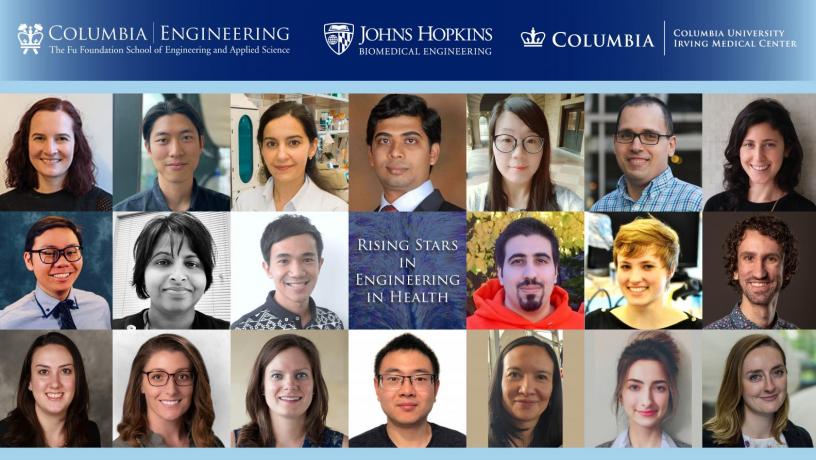
CONGRATULATIONS TO THE 2021 RISING STARS IN ENGINEERING IN HEALTH!
Introducing our 2021 Rising Stars in Engineering in Health, carefully selected from approximately 200 talented postdocs, researchers, and senior graduate students across the country. The Fu Foundation School of Engineering and Applied Science and the Vagelos College of Physicians and Surgeons at Columbia University, in partnership with Johns Hopkins University Biomedical Engineering, will host a two-day intensive training workshop for the twenty rising stars in New York City this November. All 200 program applicants are invited to attend virtually the educational portions of the workshop.
ABOUT THE RISING STARS IN ENGINEERING IN HEALTH PROGRAM
The Rising Stars in Engineering in Health program was created in 2020 by Columbia Engineering and Columbia Medicine to educate, train, and empower emerging leaders in academia at the intersection of engineering and biomedicine. The annual program welcomes applicants from across the United States and Canada, including postdoctoral fellows, research scientists and graduate students, who are 1-2 years away from applying for a faculty position. We especially encourage applicants from groups historically underrepresented in the disciplines. For the first time this year, we have partnered with Johns Hopkins University to co-host the program. Moving forward, each year, we will alternate the location of the two-day training workshop between Columbia's NYC campus and Johns Hopkins' Baltimore campus.
WORKSHOP SCHEDULE
GET TO KNOW OUR RISING STARS!
Claudia C. Biguetti, DDS, PhD
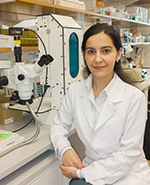
Dr. Claudia Biguetti is currently a Postdoctoral Research Associate at the Biomaterials for Osseointegration and Novel Engineering (BONE) Lab, Department of Bioengineering at the University of Texas at Dallas (Richardson, TX). She earned her DDS from the University Sagrado Coração (Brazil) and obtained her MS and PhD degrees in 2014 and 2018 from the Bauru School of Dentistry, University of São Paulo (Brazil). To further pursue her career in biomedical sciences, she joined the BONE lab in 2020, which parallels her interests in fostering interdisciplinary biomaterials research for applications in orthopedics and dentistry. Dr. Biguetti’s main research goals focus on the understanding of immunomodulatory mechanisms related to successful titanium osseointegration by using preclinical in vivo models and molecular approaches. Her long-term goal is to translate bench findings into more predictable treatments for patients who are susceptible to experience implant failure.
Pamela Cabahug Zuckerman, PhD
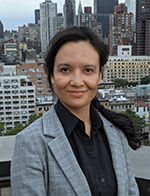
Pamela is an engineer-scientist, engaging Biomedical Engineering to discover therapies and seeking a Faculty position. Her main research interest are mechanisms by which physical signals affect cellular activities including stem cell fate decisions. She has been investigating how resident cells respond to mechanical signals to affect homeostasis and repair of skeletal tissue. In her PhD work at the City College of NY (CCNY), and postdoctoral research at New York University (NYU), she has been studying the challenges of disuse and aging. At CCNY, she established that osteocyte apoptosis controls disuse osteoporosis and identified a novel integrin-based mechanotransduction complex in bone cells, which exhibits plasticity in varying mechanical and chemical environments. At NYU, she investigated CXCL12 in bone repair and mechanoresponse, and characterized age-associated alterations of stromal cell populations during load-induced osteogenesis. She aspires to participate in bioengineering discoveries ameliorate quality of life and contribute significantly to STEM education.
Lisa D. Cervia, PhD
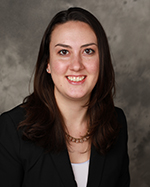
Dr. Lisa Cervia is a postdoctoral research fellow at Dana-Farber Cancer Institute and the Broad Institute of MIT and Harvard and is a recipient of the American Cancer Society Postdoctoral Fellowship. She works under the mentorship of Dr. William Hahn, applying functional genomics to identify and study genes implicated in cancers. She received her BS in Biomedical Engineering from Boston University in 2012 and earned her PhD in Biomedical Engineering at Duke University in 2017. Her PhD studies, under advisor Dr. Fan Yuan, focused on molecular and cellular engineering, including mechanistic studies to understand methods of gene delivery through delivery of exogenous DNA. This allowed her to enhance the efficiency by which new DNA can be introduced into a cell and successfully expressed. Her gene delivery expertise, specifically in-depth knowledge of electrotransfection, allows her to have unique contributions to the field of cancer genetics and design delivery methods for therapeutics.
Kristine M. Fischenich, PhD
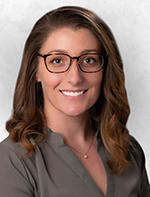
Kristine received her Ph.D. Biomedical Engineering in Dr. Tammy Haut Donahue’s lab at Colorado State University in 2018. Her graduate work centered around knee joint injuries and treatment modalities with a focus on the soft tissue of the knee meniscus and articular cartilage. She continues her work in soft tissue biomechanics investigating the development and treatment of pediatric injuries and growth abnormalities as a Postdoctoral Fellow at the University of Colorado Boulder, under Dr. Virginia Ferguson, and now University of Colorado Anschutz Medical Campus, under Dr. Karin Payne. Kristine’s long-term vision is to be a leader in multi-scale knee tissue biomechanics and work to solve orthopaedic conditions that affect both children and adults.
Sharon Fleischer, PhD
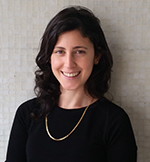
Sharon Fleischer is a Postdoctoral Research Scientist in Dr. Gordana Vunjak-Novakovic’s research group at Columbia University. She received her Ph.D in Biomedical Engineering in Dr. Tal Dvir’s at Tel-Aviv University, Israel. During her Ph.D she developed bioinspired materials to engineer functional cardiac tissues for regenerative medicine applications. She received multiple fellowships and awards, including the Adams Fellowship and Rappaport Award for Biomedical Research. In 2017, she started her postdoctoral training, supported by the Rothschild Fellowship. Sharon’s current research is focused on developing models of the adult human heart and harnessing them to study and diagnose cardiac pathologies. Sharon’s long-tern career goal is to develop advanced tissue engineering-based platforms for disease modeling, diagnostics, and precision medicine.
Michael A. Friedman, PhD
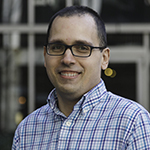
Dr. Michael Friedman is a NASA Translational Research Institute for Space Health Postdoctoral Research Fellow in Dr. Henry Donahue’s lab in Biomedical Engineering at Virginia Commonwealth University. Michael received a BS in BME from University of Texas at Austin and a MSE and Ph.D. in BME from University of Michigan. Michael’s postdoctoral fellowship is aimed at studying the effects of genetic variability on the musculoskeletal response to unloading. This groundbreaking work has led to young investigator awards from the Orthopaedic Research Society and American Society for Bone and Mineral Research. Additionally, Michael has been awarded a NASA TRISH Go for Launch Grant to continue this work as a principal investigator. Michael is interested in establishing a lab studying the effects of mechanical loading and unloading on bone and skeletal muscle, focusing on how aging and disuse negatively affect these tissues.
Sairam Geethanath, PhD
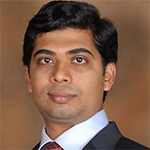
Dr. Geethanath is a biomedical engineer with a broad background in MR technology development and clinical translation. His career interests are in developing novel system software, image acquisition and reconstruction methods. These are aimed to deliver accessible, equitable and inclusive MRI solutions to deliver scientific and medical benefits to underserved populations. Currently, he is developing methods related to autonomous MRI, new methods of spatial encoding and accelerated quantitative imaging to build hardware cognizant systems and methods. In the past, he served as one of five investigators to build India’s first indigenous 1.5T MRI. He also worked on accelerated MRI acquisition and reconstruction methods to overcome challenges related to spatio-temporal resolutions in collaboration with the industry. He has directly contributed to tools for the open source software community. He graduated from the joint program at the Universities of Texas Southwestern and Arlington; and trained at Imperial College London as a research associate.
Patrick Han, PhD
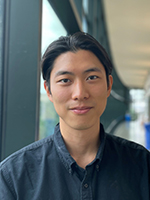
Patrick received his PhD in Chemical Engineering in Dr. Tarek Fahmy's lab at Yale as NSF Graduate Research Fellow. His work focused on developing translational tools for drug delivery, immunotherapy, and point-of-care diagnostics, focusing on nanomaterials-based therapeutics and sensors. During this time, Patrick was introduced to an FDA-approved cancer therapy called Extracorporeal Photopheresis (ECP). Though utilized world-wide for treatment of cutaneous T-cell lymphoma, ECP was suffering from an underdefined mechanism-of-action since its conception and approval, leading to its limited clinical application across cancers. Patrick’s work has uncovered a key interaction between platelets and monocytes that triggers anti-tumor immune responses in ECP, by which monocytes mature into clinically effective antigen cross-presenting cells called physiologic Dendritic cells (phDCs). At the Cresswell and Edelson labs at the Yale School of Medicine, Patrick is dissecting the basic immunobiology of phDCs’ antigen-presenting capabilities and investigating their potential as cell-based immunotherapies against cancers and autoimmune diseases.
Kenry, PhD
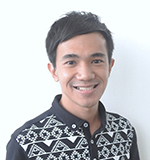
Kenry is currently a Postdoctoral Fellow in Bioengineering at Harvard University and a Research Fellow in Imaging and Radiology at Dana-Farber Cancer Institute and Harvard Medical School. He received his PhD in Biomedical Engineering from the National University of Singapore and BEng in Electrical and Electronic Engineering from Nanyang Technological University, Singapore. His research lies at the intersection of nanomedicine, biophysics, vascular biology, and immuno-oncology. Specifically, Kenry’s research focuses on the design and engineering of theranostic nanomaterials for precision nanomedicine based on a comprehensive understanding of the interactions between nanomaterials and biological barriers. To date, Kenry has authored/co-authored 60 journal articles, including 31 first-author articles, and 2 book chapters. Through his research, Kenry has been recognized with numerous awards and honors, including Distinguished Young Scholars Seminar Speaker (University of Washington), AACR-WuXi AppTec Scholar-in-Training Award, Rising Star in Engineering and Health (Columbia University), and ACS POLY/PMSE Future Faculty Scholar.
Kelsey P. Kubelick, PhD
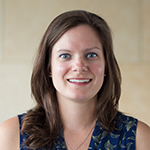
Kelsey P. Kubelick is a postdoctoral fellow in the Wallace H. Coulter Department of Biomedical Engineering and the School of Electrical and Computer Engineering at the Georgia Institute of Technology and Emory University. Her primary research focuses on development of cell and particle tracking approaches using ultrasound, photoacoustic, and magnetic resonance imaging to expedite translation of novel therapies, particularly in the fields of regenerative medicine and immunology. In addition, Kelsey is heavily engaged in medical device development for resource-limited environments to address pressing global health needs.
Susan E. Leggett, PhD
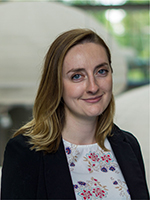
Susan E. Leggett received her B.S. in Biochemistry with a minor in Mathematics from the University of Vermont in 2013. She earned her Ph.D. in Pathobiology from Brown University in 2018 under the mentorship of Dr. Ian Y. Wong. At present, Susan is a NJ ACTS Clinical and Translational Science Fellow at Princeton University in Dr. Celeste M. Nelson’s lab. Susan has been awarded numerous honors, including a Barry M. Goldwater scholarship, a Graduate Award in Cancer Research, as well as predoctoral and postdoctoral fellowships. As a postdoctoral fellow, Susan is leading a project to investigate the role of epithelial-mesenchymal diversity on triple-negative breast cancer progression and is a Co-I of a Clinical and Translational Science Award Pilot Grant funding this research. In her future research, Susan aims to study tumor heterogeneity by integrating methods in quantitative image analysis, phenotypic profiling, and bioengineering to develop platforms to improve personalized medicine.
Lei Li, PhD
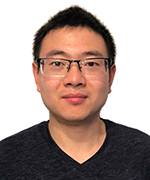
Lei Li obtained his Ph.D. degree from the Department of Electrical Engineering at California Institute of Technology (Caltech) in 2019. He received his MS degrees at Washington University in St. Louis in 2016. He is currently a postdoctoral scholar in the Department of Medical Engineering at Caltech. His research focuses on developing next-generation medical imaging for understanding whole-brain functions, diagnosing human breast cancer, and wearable monitoring of human vital signs. He was selected as one of the TED fellows in 2021. He received the Charles and Ellen Wilts Prize from Caltech in 2020 and was selected as one of the Innovators Under 35 by MIT Technology Review in 2019. He is also a two-time winner of the Seno Medical Best Paper Award granted by the Society of Photo-Optical Instrumentation Engineers (2017 and 2020, San Francisco).
Kalpana Mandal, PhD
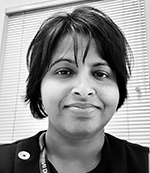
Kalpana Mandal is a postdoctoral researcher with Prof. Ali Khademhosseini at Terasaki Institute for Biomedical Innovation. She is working in biomedical engineering in past few years. She completed her Ph.D. from Grenoble University, France, where she worked on the role of extracellular matrix geometry in cell force distribution. During her postdoc she started working on cancer research and understanding the underlying mechanism using engineering approaches. Her current research at Khademhosseini lab focuses on developing organ-on-chip technology using 3D printing, microfluidics-based devices. Her research also focuses on developing new biomaterials including oxygen releasing biomaterials with an end goal of prolonging the heart transplant time window from 4 h to a day. In addition, she is studying breast cancer immunotherapies using 3D tissue scaffolds.
Pim Oomen, PhD
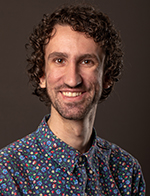
Dr. Pim Oomen is intrigued by the roles tissue growth and remodeling play in health and disease of the cardiovascular system. His research focuses on developing multiscale computational and experimental approaches to investigate the mechanics of cardiovascular growth and remodeling. By working closely together with both engineers and clinicians, he is building bridges between engineering and medicine to develop novel strategies for improving patient healthcare.
Pim is currently a Senior Scientist in the Division of Cardiovascular Medicine at the University of Virginia, where he works with Dr. Jeff Holmes and Dr. Kenneth Bilchick. Prior to coming to the US, he received his Ph.D. in Biomedical Engineering in 2018 at the Eindhoven University of Technology in his native Netherlands in the lab of Dr. Carlijn Bouten and Dr. Sandra Loerakker. Part of his Ph.D. research was conducted at Stanford University with Dr. Ellen Kuhl.
Katheryn E. Rothenberg, PhD
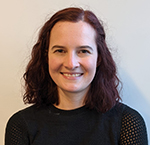
Katheryn Rothenberg is a postdoctoral fellow at the Institute of Biomedical Engineering at the University of Toronto in the lab of Rodrigo Fernandez-Gonzalez. She received her Ph.D. in Biomedical Engineering from Duke University where she was supported by a National Science Foundation fellowship. During her Ph.D., Katheryn studied the role of vinculin at focal adhesions in cell sensing of physical environmental cues. Currently, she uses wound repair in the fruit fly embryo as a model system to study the molecular rearrangements underlying collective cell migration. Her work is supported by a Canadian Institutes of Health Research fellowship. Katheryn plans to continue using both in vitro and in vivo models to study how mechanical signals at cell adhesions help to drive collective cell migration.
Natasha D. Sheybani, PhD
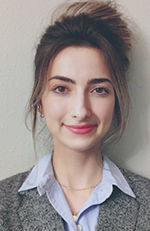
Dr. Natasha Sheybani is a postdoctoral fellow in Oncology, Biomedical Data Science and Radiology at Stanford School of Medicine, supported by the NCI Predoctoral-to-Postdoctoral Fellow Transition Award (F99/K00). Previously supported by the NSF Graduate Research Fellowship and Robert R. Wagner Fellowship, Dr. Sheybani earned her Ph.D. in Biomedical Engineering (BME) from the University of Virginia (UVA). Her dissertation centered on leveraging therapeutic ultrasound to potentiate cancer immunotherapy in solid tumors of the brain and periphery. Looking ahead, her goal is to usher therapeutic ultrasound into the burgeoning era of precision immuno-oncology by using innovative translational approaches in liquid biopsy, quantitative imaging, and artificial intelligence for non-invasive risk stratification, therapeutic monitoring, and individualization of treatment paradigms combining ultrasound and immunotherapy. Dr. Sheybani completed her B.S. (with Honors) in BME as a Eugene P. Trani Scholar at Virginia Commonwealth University.
Arvin H. Soepriatna, PhD
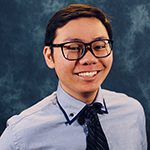
Arvin Soepriatna is a postdoctoral fellow in the Coulombe Lab for Cardiovascular Regenerative Engineering at Brown University. He received his B.S. in Biomedical Engineering from Washington University in St. Louis in 2014 before earning his Ph.D. in Biomedical Engineering from Purdue University in 2019. During his graduate training, under the mentorship of Dr. Craig Goergen, Arvin worked to advance ultrasound technology to noninvasively characterize myocardial mechanics throughout post-infarction cardiac remodeling. His postdoctoral research employs tissue engineering techniques to study drug-induced arrhythmias and to investigate how epicardially implanted engineered heart tissues alter the mechanical and electrical properties of repaired infarcts. Arvin has received numerous awards and recognitions for his research, teaching, and mentorship, including a postdoctoral fellowship from the American Heart Association. His long-term career goal is to establish a laboratory that utilize cutting-edge imaging tools to reveal the complex interplay between mechanical and electrical remodeling driving cardiac disease progression.
Salman Sohrabi, PhD
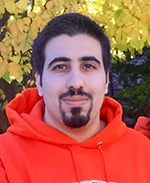
Salman Sohrabi is a postdoctoral fellow in Lewis-Sigler Institute for Integrative Genomics at Princeton University in Dr. Coleen Murphy’s lab. Previously, he received his PhD from Lehigh University in Mechanical Engineering where he worked with Dr. Yaling Liu on variety of topics such as drug delivery, mechanical cell damage, microfluidics, stereolithography, circulating tumor cell capture, and molecular dynamic simulation. In his postdoc, he applied his engineering skillset to develop tools to automate genetic and drug screening using C. elegans. Working in a molecular biology lab and through his close collaboration with molecular biologists and neuroscientist, he has acquired quality bench experience to carry out high-impact research on aging and age-related diseases. During his work in Murphy lab, he has developed CeSnAP (C. elegans Snapshot Analysis Platform), CeLab (a miniature C. elegans Lab), CeAid (C. elegans Application for inputting data) and MemoryMachine.
Alice E. Stanton, PhD
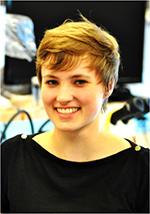
Dr. Alice Stanton is engineering the next-gen of mini-tissues to accelerate drug discovery and translation for personalized medicine. She engineers cell-instructive materials and harnesses the extracellular matrix to develop in vitro models to help us understand, mimic, and treat the body to advance human health. She is particularly interested in neurological disease and has developed a mini-brain model complete with all 7 brain cell types, engineering a brain-mimetic hydrogel matrix promoting cell network self-assembly and neuronal maturation. She is an NIA Ruth L. Kirschtein NRSA Postdoctoral Fellow in the Robert Langer Laboratory at Massachusetts Institute of Technology and has been selected as a Chemical Engineering Rising Star by MIT. She received her Ph.D. in Bioengineering from Stanford University and B.S.E. in Chemical Engineering from Princeton University. She trained in the laboratory of Marc Tessier-Lavigne at Rockefeller University and in the department of Biochemical and Cellular Pharmacology at Genentech.
Jing Tang, PhD
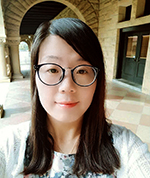
Jing Tang is currently a postdoctoral fellow at Stanford. She works on bioinspired materials and devices for health and sustainability. Prior to Stanford, she was a research fellow jointly at Harvard and MIT, working on neurological disorder therapies: from biomaterials to smart drug delivery systems. Her graduate work at Fudan University focused on bioelectronics for artificial vision.
Jing’s work has been published in top tier peer-reviewed journals, including Nature Chemistry, Nature Communications, PNAS, Science Advances and Nature Sustainability. She is an MIT ChemE Rising Star; a Review Editor for Frontiers in Bioengineering and Biotechnology. She was selected as one of the MIT Technology Review 35 Innovators Under 35 China (MIT TR35, 2020); she received the Young Investigator Award from the Northern California Chapter of the American Association of Physicists Symposium (2019), Baosteel’s National Grand Prize Award (Ranked #1 Nationally, 2015). She chaired invited talks at Materials Research Society Fall Meeting.
